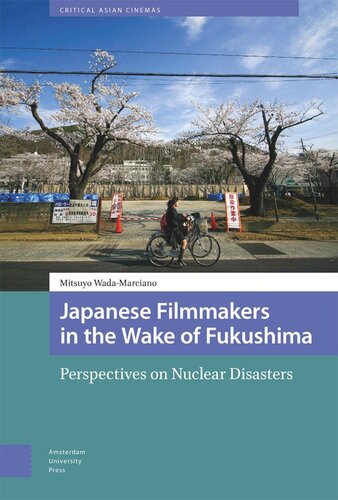

Most ebook files are in PDF format, so you can easily read them using various software such as Foxit Reader or directly on the Google Chrome browser.
Some ebook files are released by publishers in other formats such as .awz, .mobi, .epub, .fb2, etc. You may need to install specific software to read these formats on mobile/PC, such as Calibre.
Please read the tutorial at this link: https://ebookbell.com/faq
We offer FREE conversion to the popular formats you request; however, this may take some time. Therefore, right after payment, please email us, and we will try to provide the service as quickly as possible.
For some exceptional file formats or broken links (if any), please refrain from opening any disputes. Instead, email us first, and we will try to assist within a maximum of 6 hours.
EbookBell Team

0.0
0 reviewsn the ongoing aftermath of the nuclear accident in 2011, filmmakers have continued to issue warnings about the state of Japanese society and politics, which remain mired in refusal to change. Nearly a decade in the making, Japanese Filmmakers in the Wake of Fukushima is based on in-person interviews with countless filmmakers, as well as continuous dialogue with them and their work. Author Wada-Marciano has expanded these dialogues to include students, audiences at screenings, critics, and researchers, and her observations are based on down-to-earth-exchange of ideas engaged in over a long period of time.
Filmmakers and artists are in the vanguard of those who grapple with what should be done regarding the struggle against fear of the invisible blight—radiation exposure. Rather than blindly following the mass media and public opinion, they have chosen to think and act independently. While repeatedly viewing and reviewing the film works from the post-Fukushima period, Wada-Marciano felt the unwavering message that emanates from them: “There must be no more nuclear weapons.” “There must be no more nuclear power generation.” The book is dedicated to convincing readers of the clarity of their message.